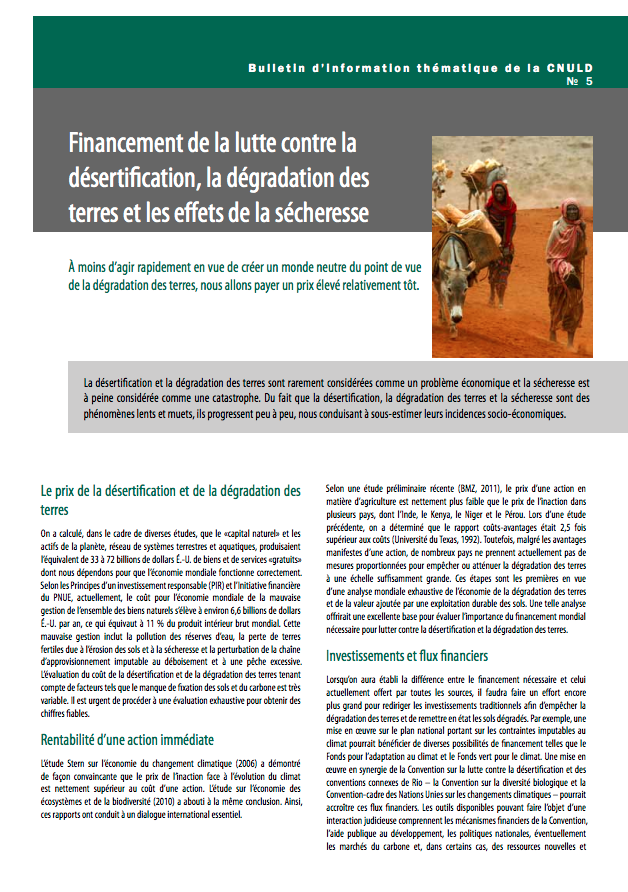Financing to combat desertification, land degradation and the effects of drought
Desertification/land degradation is rarely accounted for as an economic issue, and drought barely accounted for as a disaster. Because desertification, land degradation and drought are slow and silent phenomena, they have a way of creeping up on us and thereby leading us to underestimate their socio-economic impacts.







